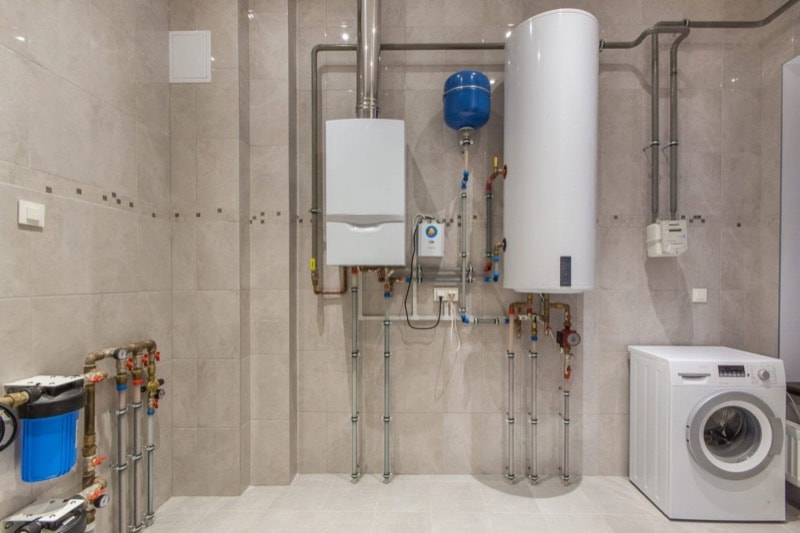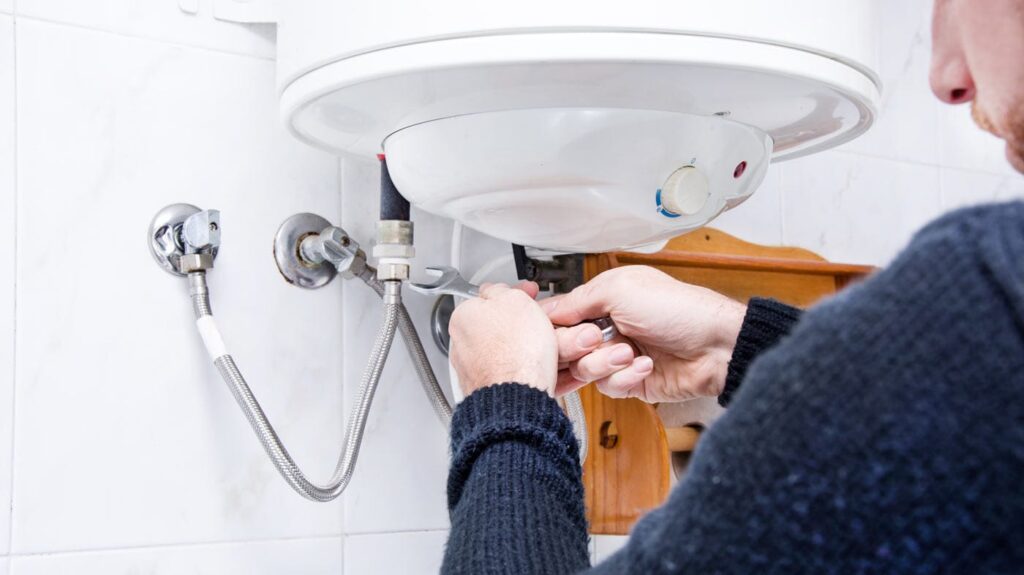Energy use is a major part of the budget for most homes. And a large portion of that energy use goes towards heating water. In fact, according to the United States Department of Energy, almost 20% or the average home’s energy usage is consumed by heating water. If you’re looking to shrink your household budget or want to lower energy usage to limit greenhouse gas emissions (or both!), a great way to start is by lowering the amount of energy used to heat water.

Let’s look at ways we can trim the energy costs associated with water heating. Here are eight strategies you can employ to help you save money on your water heating bill.
Tankless, or “on-demand” water heaters, are very different from the water heaters most of us are most familiar with. Rather than heating water and storing it in a large tank, tankless heaters heat water when you need it with the use of gas burners or electric heating elements. That gives tankless water heaters some advantages over tank-type heaters — they take up less space, last longer, and most importantly for us, use less energy to provide your home with hot water.
You will need to balance these energy savings with the higher initial cost of a tankless heater. But throughout your heater’s lifespan, you’ll recoup your investment and more in your energy budget.
If the expense of a tankless water heater gives you pause, consider purchasing a new tank-style heater, particularly if your current water heater is 10 or more years old. Not only will your existing model be nearing the end of its service life, but newer water heaters are considerably more efficient than even the last generation of home water heaters.
Why pay to heat water when you’re not using it? A timer will turn the heating elements of your tank-style water heater off when it’s not in use. You decide the schedule and set the timer to suit your household’s needs. Many newer water heaters have timers built-in, but a qualified plumber can easily add one to your system.
Your water heater should only heat your water, not your garage or basement. But if your water heater and exposed pipes aren’t well insulated that’s exactly what you’ll be doing. Consider adding an insulation jacket or blanket to your water heater to keep the heat in. And if you have lengths of exposed pipe leading out of your water heater, adding insulation to them will save energy and money as well.
If you have an older water heater you may be losing hot water through a process called convection, where heat escapes via the cold-water inlet pipes. While most newer water heaters have built-in heat traps, you can have them added if necessary. Consult a plumbing professional to have them evaluate your system.
When you’re considering the cost of your water heating, you’ve got to think about more than just the energy required to produce and store your hot water. How much hot water you use is an important part of the equation as well. Accordingly, take a hard look at your current appliances. You may be able to create significant savings in your energy budget by upgrading these two appliances.
It’s easy to forget about your water heater — until something goes wrong with it. But even if you’re not experiencing a catastrophic failure of your water heater, performance may be degrading slowly over time. Most importantly, storage-tank water heaters should be drained regularly to remove sediments from the tank.

A buildup of sediment will impede the water heater’s efficiency, causing you to spend more money than you need to, plus possibly shortening the life of your heater. Draining the tank is a pretty simple process, but call a plumber to get the job done if you’re not comfortable doing the job yourself.
Not every method of saving money on your water heating bill requires a capital outlay. There are many simple things you can do around the house that will lower the amount of hot water you use in the home. Give some of these a try — you may be surprised at the results.
Saving money on your water heating bill can be accomplished in many different ways. Some are small changes in habits, while some may require consultation with professional plumbers or contractors. If you need professional help remember getting a quote is free! Our qualified and licensed plumbers are here to help!
